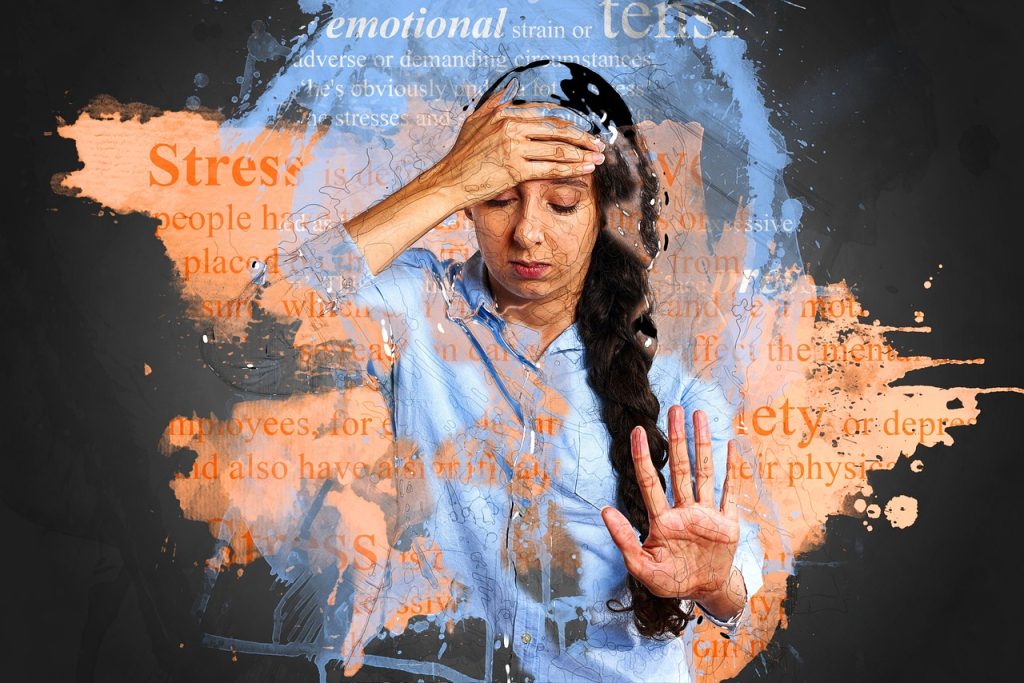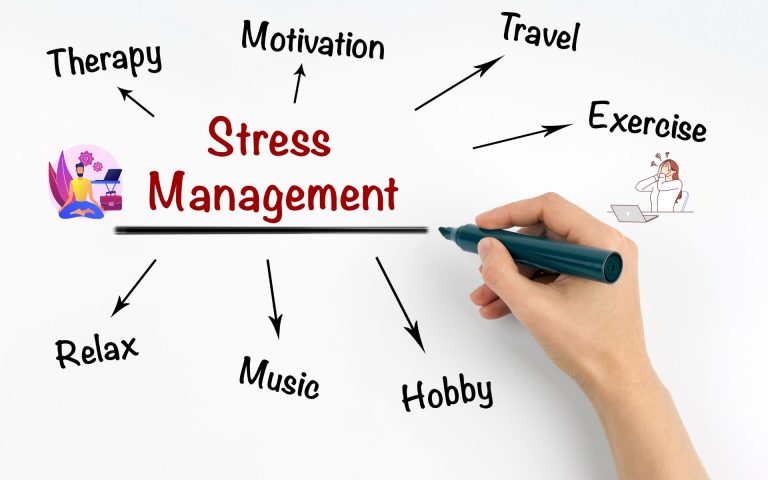Importance of Stress Management
On August 11, 2014, I was shocked by the news on my Facebook about the death of Robin Williams. He committed suicide by hanging himself when he was discovered dead in his flat. The shockwave of this news echoed among his countless fans including myself. At first, it was difficult for me to process how a person as famous as Robin Williams can do such a desperate act. He seemed to have everything most of us could only dream of, including a loving daughter and a supportive wife. Yet, deep inside, he battled unhappiness that we didn’t know. It soon became public knowledge that he had been wrestling with depression, struggling to cope with the weight of stress, ultimately leading him to take his own life. This tragedy serves as a stark reminder of the risks of unchecked Managing stress and its devastating power, which can push us towards unthinkable actions if not properly managed.
Understanding Stress, the Difference between acute stress and chronic stress
Before delving into stress mitigation techniques, let’s first explore the nature of stress. Stress can be broadly categorized into two types based on duration: acute stress and chronic stress. Essentially, stress is a biological response system designed to protect us from potential threats. Over millions of years, stress has served as a mechanism to keep us away from harmful situations. Imagine our ancestors encountering the footprints of a ferocious animal in their territory—they would experience stress. Questions would arise: Why is this animal here? What are the chances of it returning to harm me or my family members? This stress prompted our ancestors to devise strategies to mitigate that danger. In this context, stress is a positive factor for our survival and played a major role in evolution. The stress we feel in response to sudden events or accidents is short-term and may last a couple of minutes or up to three days max. This type of stress is called acute stress and we are natural mechanisms to counteract it.
Impact of chronic stress on Health
Chronic stress is long-term in nature. Possible symptoms of chronic stress are feeling of isolation, low energy, ache or pain, trouble sleeping, trouble staying focused, or a change in appetite. There is no magic formula to relieve chronic stress. This is a direct cause of unhealthy external environments such as toxic relationships, stressful working environments, work overload, discrimination, the threat to life, etc. In this situation, chronic stress is an indicator warning us to change our lifestyle or change harmful external factors.
Chronic stress, unlike acute stress, persists over the long term. Symptoms associated with chronic stress can include:
- feelings of isolation,
- low energy levels,
- bodily aches or pains,
- difficulty sleeping,
- impaired concentration,
- changes in appetite.
It is primarily caused by unhealthy external environments such as toxic relationships, stressful work settings, excessive workloads, discrimination, or threats to life. In such circumstances, chronic stress serves as an indicator, warning us to make changes in our lifestyle or address the detrimental external factors contributing to our distress.
Chronic or prolonged stress has detrimental effects on our lives, as it can harm our health. It may lead to physical conditions like headaches, digestive problems, and disruptions in sleep patterns. Psychologically, chronic stress can result in emotional strain, confusion, heightened anxiety, and depression. American Psychological Association has issued a warning that, if left untreated, chronic stress can contribute to high blood pressure and a weakened immune system.

Signs and Symptoms of Stress:
How can you identify if you are experiencing stress? Stress directly impacts our emotions, behaviors, and even our physical well-being. Often, we overlook these signs and continue with our daily lives. When under stress, you may notice the following feelings and behaviors:
- Irritability, anger, or impatience
- Overwhelm or a sense of being burdened.
- Anxiety, nervousness, or fear
- Inability to experience enjoyment.
- Depression
- Loss of interest in life
- A diminished sense of humor
- Feelings of dread
- Worry or tension.
- Sensations of neglect or loneliness
Stressful situations can exhibit various physical effects, including:
- Breathing difficulties
- Panic attacks
- Eye soreness
- Sleep disorders
- Fatigue
- Muscle aches and headaches
- Chest pains and elevated blood pressure
- Indigestion or heartburn
- Constipation or diarrhea
- Feeling sick, dizzy
Strategies for Managing Stress:
Understanding the presence of stress and the major effects it can have on your mental and physical health is the first and most important step in managing it. It’s time to act after you’ve realized this. It’s crucial to keep in mind that the past shouldn’t overpower your present; instead, you should concentrate on going forward. Think about driving a car: you’ll inevitably crash if your eyes are continuously glued to the rearview mirror. Similarly, to this, we should avoid getting mired in our past mistakes in life even though we can use them to inform our present decisions. Although our past negative experiences or incidents may contribute to our stress, we cannot change what has already happened. Instead, we must progress and effectively address our stress. Stress is manageable, and the following techniques can help you in your stress management journey.

Physical Techniques:
There was a case where an individual sent an email to Andrew Tate expressing feelings of depression and contemplating ending his life. In response, Andrew Tate asked for a favor before taking such a drastic step. He requested the person to go to the gym and work on achieving six-pack abs. Once he had accomplished this, he could reassess his life decisions. After six months, the person sent a photo to Andrew Tate, proudly displaying his six-pack abs. He expressed that he no longer felt stressed, as he had discovered a love for exercise and found a renewed sense of purpose in life. He no longer desired to end his life, as he now cherished it. Whenever you feel stressed, do fifty pushups, and observe if the stress persists. We encourage you to go outside and engage in a sprint, which would elevate testosterone levels and increase heart rate, potentially alleviating stress. Recognizing that excess weight can contribute to stress, we suggest you go to the gym and attain the desired body shape you always wanted. You can experience a dramatic change in your life by doing this.
Lifestyle Change:
When discussing lifestyle changes, we are not suggesting minor adjustments, but rather a complete turnaround of 360 degrees. It’s time to make a radical shift if you find yourself stressed out about many elements of your life. Are you overwhelmed by dirty corporate politics, excessive workload, lack of respect, or being underpaid It’s time to deal with these problems. Either you can alter the circumstance, or you can walk away. Consider starting a small business and becoming an entrepreneur and explore alternative ways to earn money. Close your eyes and visualize what you truly desire. Keep in mind that the only thing standing in your way of achieving your goals is you. The same principle applies to relationships—either transform the dynamics or make the decision to leave. Making decisions that are beneficial for you and your well-being are not to be ashamed of.
Cognitive Emotional Regulation:
You can draw upon the insights from modern psychological research on stress management techniques. There are six valuable skills in emotional regulation that can be developed through practice:
- Self-awareness
- Mindful awareness
- Cognitive reappraisal
- Adaptability
- Self-compassion
- Emotional support
Incorporating Stress Management into Daily Life:
Managing stress becomes easier when you set goals and devise plans to achieve them. It is like making a commitment or agreement with yourself. Here is a list of 10 things you can implement in your routine to make each day productive:
- Strike a balance between work and play.
- Plan your day ahead.
- Stick to your planned schedule.
- Don’t hesitate to ask for help when needed.
- Harness the positive energy of stress.
- Address problems as they arise.
- Nourish your body with good food.
- Ensure you get enough sleep.
- Engage in regular exercise.
- Practice deep breathing techniques.

Final Words:
Stress is a factor in our lives that is frequently ignored, but it may have a serious detrimental effect on our mental and physical health. Given that data reveal that 70% of people who commit suicide in the US are men, its effects may even include the terrible result of suicide. This alarming trend highlights the gender biases present today and the legal system, emphasizing the need to recognize the value and worth of every individual.
When stress becomes overwhelming, particularly for men who often shoulder the responsibility of supporting their families, it is crucial to evaluate and address toxic external situations. Whether that means actively working towards change or making significant life adjustments, the importance of managing stress cannot be overstated.
In our pursuit of stress management, it is essential to seek expert tips and strategies. By incorporating physical techniques, such as exercise and adopting a healthy lifestyle, we can proactively alleviate stress. Additionally, developing cognitive and emotional regulation skills empowers us to navigate life’s challenges with greater resilience and well-being.
In conclusion, stress must be acknowledged as a prime factor in our lives and dealt with accordingly. By recognizing its presence, taking proactive steps to manage it, and advocating for a more inclusive society, we can work towards creating a world where stress is not a silent burden but a challenge that is openly acknowledged and addressed. Prioritizing our mental and physical health can help us all achieve stress-free lives that are rich in resilience, fulfillment, and contentment.

